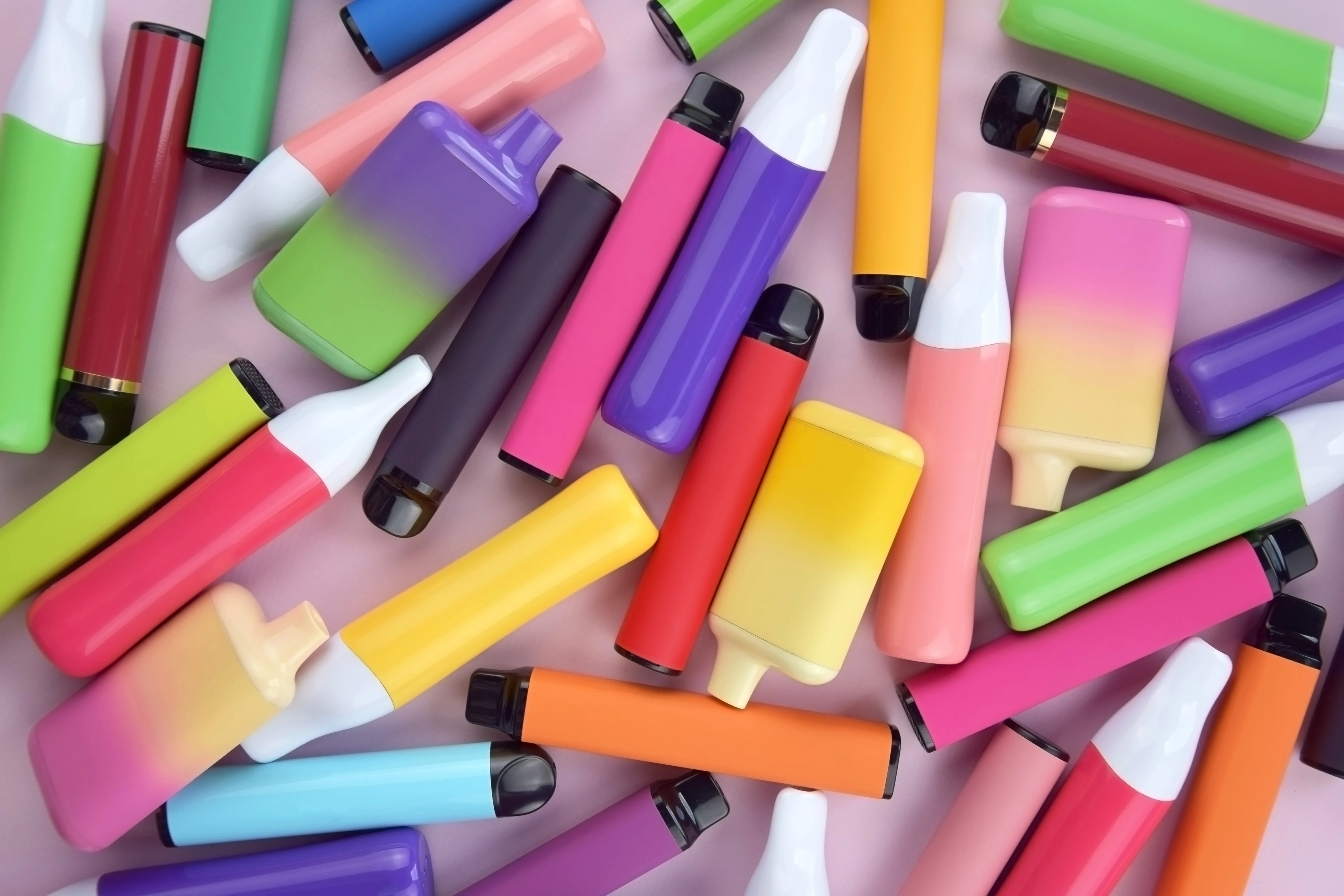Why Nicotine Must Be Stopped Before and After Plastic Surgery: What Patients Need to Know

Whether you’re considering a breast procedure, rhinoplasty, or body contouring, you’ve likely been advised to stop using nicotine well in advance of surgery. But why is nicotine such a big deal when it comes to healing?
At Metropolitan Plastic Surgery, Dr. Aimé requires all patients to stop nicotine in all forms for at least 4–6 weeks before and after surgery. This isn’t just a precaution — it’s a medical necessity that protects your safety, your results, and your recovery.
Here’s what every patient needs to know.
What Does Nicotine Do in the Body?
Nicotine is a powerful chemical found in:
- Cigarettes
- Vapes / e-cigarettes
- Chewing tobacco
- Nicotine gum, patches, lozenges, and sprays
- Hookahs and cigars
Once in your system, nicotine acts as a vasoconstrictor — it shrinks and tightens your blood vessels. This limits blood flow to tissues, which is the exact opposite of what your body needs during healing.
How Long Does Nicotine Stay in Your System?
While nicotine itself breaks down in a few hours, its byproducts — especially cotinine — can linger for 3 to 4 weeks or longer, depending on your metabolism and usage.
That’s why we require a full 4–6 weeks of complete nicotine cessation before and after surgery. This gives your body enough time to fully clear out these substances and restore normal circulation for healing.
Why Nicotine Is Harmful for Surgical Healing
Nicotine use affects nearly every stage of recovery. Here’s how:
1. Reduced Oxygen and Nutrient Delivery
Nicotine tightens blood vessels and decreases oxygen flow to skin, muscle, and fat. Healing tissues need rich blood flow to regenerate and close incisions properly. Without it, the risk of tissue death (necrosis), wound breakdown, and delayed healing goes up dramatically.
Patients who use nicotine have up to 7 times the risk of tissue damage compared to non-smokers.
2. Higher Risk of Tissue Loss (Necrosis)
One of the most serious complications we try to prevent is tissue death — when part of your skin or fat loses circulation and dies, leaving darkened areas, open wounds, or misshapen results.
This is especially dangerous in procedures where blood flow is already delicate, such as:
- Facelifts
- Breast lifts or reductions
- Tummy tucks
- Nipple reconstruction
- Fat transfer to the breast or face
Nicotine can completely choke off the blood supply to these tissues. In fact, smokers and nicotine users have up to 7 times the risk of tissue loss compared to non-smokers.
3. Increased Risk of Infection
Poor blood flow also means fewer white blood cells reach the incision site, making it harder for your body to fight off bacteria.
Studies show nicotine users are 2–3 times more likely to develop an infection after surgery. Infections can lead to:
- Delayed wound healing
- More visible or uneven scarring
- Additional procedures or antibiotics
4. Poor Incision Healing and Worse Scarring
Even if healing occurs, nicotine often leads to more noticeable, irregular scars. That’s because it:
- Reduces oxygen and collagen delivery to healing skin
- Slows down wound closure
- Increases inflammation around the incision
As a result, patients who use nicotine are more likely to develop:
- Wider or stretched scars due to slow healing
- Darker, more pigmented scars, especially in skin of color
- Thick, raised (hypertrophic) scars that are hard to treat
- Irregular or jagged scar edges where the skin didn’t close evenly
- Worsened keloids, in patients already prone to them
These scars may require laser treatments, silicone therapy, or revision surgery — all of which could have been avoided with nicotine cessation.
5. Greater Risk During Anesthesia
Nicotine doesn’t just interfere with recovery — it makes surgery itself riskier.
It increases the chances of:
- High blood pressure or irregular heartbeat under anesthesia
- Low oxygen levels and poor lung performance
- Airway irritation, making intubation more difficult
- Prolonged grogginess, nausea, or slower recovery from sedation
In some cases, nicotine use can cause your procedure to be delayed or canceled if your body isn’t stable enough during anesthesia.
Why We Require a Full 4–6 Week Nicotine-Free Window
Nicotine isn’t something you can quit “just a few days before surgery.” The damage to your circulation builds up over time — and it takes weeks for your body to bounce back.
That’s why Dr. Aimé’s policy is:
- No nicotine for at least 4–6 weeks before surgery
- No nicotine for at least 4–6 weeks after surgery
- No exceptions — not even occasional vaping, gum, or social smoking
Your safety is non-negotiable. If nicotine use is detected or disclosed, your surgery may be postponed to protect your health and your results.
What Counts as “Nicotine-Free”?
To be truly nicotine-free, you must avoid:
- Cigarettes
- E-cigarettes and vaping
- Chewing tobacco
- Hookahs or cigars
- Nicotine gum, patches, lozenges, or sprays
If you’re trying to quit, talk to your primary care doctor about non-nicotine aids or prescription options that won’t interfere with healing.
Healing Is an Investment — Protect It
You’re investing your time, trust, and energy into your transformation. Don’t let nicotine compromise your outcome.
By quitting in advance and staying nicotine-free through recovery, you’ll:
- Heal faster and more reliably
- Avoid preventable complications
- Enjoy smoother, softer scars
- Protect the aesthetic results you’re working so hard to achieve
Still Have Questions?
Schedule a consultation with Dr. Aimé to learn how to best prepare your body for surgery and protect your long-term results.
Our surgical and non-surgical treatment options
Ready to start your transformation?
Whether you’re just beginning to explore your options or have specific goals in mind, we’re here to guide you with expertise and compassion.

Read more articles

Why I Do Every Surgery Three Times
Every surgery doesn’t begin or end in the operating room. This article explains why I approach each procedure in three stages—planning, execution, and reflection—and how that process leads to safer surgery, more consistent results, and continuous improvement for patients.

Who Actually Gets Plastic Surgery? (It Might Surprise You)
Most plastic surgery patients aren’t celebrities—they’re everyday people who simply want to feel confident and comfortable in their own skin. Discover why plastic surgery is less about vanity and more about empowerment.

Pre-Surgery Carb Drinks: A Simple Way to Boost Recovery
Learn how pre-surgery carbohydrate drinks can improve your plastic surgery recovery by supporting hydration, reducing nausea, and stabilizing blood sugar — plus what to do if the standard drinks aren’t right for you.

Why Nicotine Must Be Stopped Before and After Plastic Surgery: What Patients Need to Know
Why We Require You to Be Nicotine-Free Before and After Surgery. Nicotine seriously interferes with wound healing, increases your risk of complications, and can compromise your surgical results. Learn why Dr. Aimé requires a strict nicotine-free window before and after plastic surgery — and how it protects your safety and outcomes.
